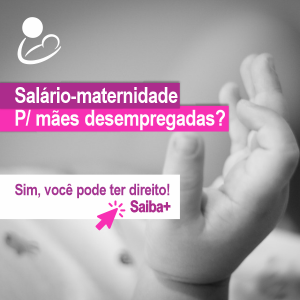Breastfeeding is more than a biological act in Brazil — it’s a cultural embrace.
Here, nursing a baby represents love, resilience, and connection. It’s a moment shared not only between mother and child but also celebrated by families, communities, and even the country’s public health system.
Yet, behind this warm picture, Brazilian mothers still face real challenges — from social pressure to lack of workplace support. Understanding the cultural and structural dynamics behind breastfeeding in Brazil reveals both the beauty and the battles of motherhood in this vibrant nation.
🇧🇷 The Cultural Side of Breastfeeding in Brazil
In Brazilian culture, breastfeeding is deeply rooted in the idea of natural care and maternal dedication. Many mothers see it as an essential expression of love and a rite of passage into motherhood.
It’s common to see mothers nursing in public without stigma — something that reflects Brazil’s emotional openness and family-oriented mindset. Breastfeeding is viewed as both beautiful and normal, even sacred.
However, cultural expectations also carry weight. Many women feel pressured to exclusively breastfeed even when facing pain, exhaustion, or medical complications. The cultural ideal of the “perfect mother” still affects how women experience this journey.
🏥 Public Health Support: The Role of SUS and Human Milk Banks
One of Brazil’s most remarkable contributions to global breastfeeding advocacy is its National Network of Human Milk Banks (Rede BLH) — the largest in the world.
Managed by the Unified Health System (SUS), these milk banks collect, process, and distribute donated breast milk to premature or sick babies who need it most.
Beyond that, many hospitals offer “Amamenta e Cuida” programs, where nurses and lactation consultants guide new mothers in breastfeeding techniques, baby positioning, and postpartum care.
Brazil’s public policies also support breastfeeding through:
- Extended maternity leave (120 to 180 days) for formal workers.
- Breastfeeding breaks during working hours.
- Public awareness campaigns like “Agosto Dourado” (Golden August) — a national movement that celebrates and promotes breastfeeding.
This structure shows how Brazil combines emotional culture with institutional care — a rare blend in the world.
💬 The Social Reality: Between Support and Struggle
While many Brazilian mothers feel socially supported, not all have equal access to help.
In rural areas or low-income communities, professional guidance is often limited. Hospitals may be overcrowded, and home visits by health agents, although valuable, are not always consistent.
Moreover, not every workplace respects breastfeeding rights. Some mothers return to work early, without adequate lactation rooms or flexible schedules — making it hard to sustain breastfeeding exclusively for six months, as recommended by the WHO.
There’s also a silent challenge: the guilt factor.
Many women feel judged for using formula, even when it’s the best choice for their situation. Emotional support — from family, friends, and healthcare providers — is just as vital as physical care.
🤱 Brazilian Mothers Speak: Empathy and Real Life
If there’s one thing that defines Brazilian motherhood, it’s empathy.
Mothers tend to support each other, whether through online groups, local meetups, or conversations in the park. A mother breastfeeding her baby in a public place often receives smiles and gentle words of encouragement.
This sense of community can make all the difference. For many Brazilian moms, the journey of breastfeeding is not a solo act — it’s a shared experience. And that collective spirit is what keeps so many mothers going through sleepless nights and sore days.
🌼 Looking Ahead: Empowerment Through Information
Brazil continues to set global examples in breastfeeding promotion — but the next step is empowering every mother to make informed, guilt-free choices.
Whether a mom breastfeeds for two years, two months, or chooses formula, her worth doesn’t change.
What truly matters is that every woman feels supported, respected, and informed — because breastfeeding should be a right, not a burden.
Breastfeeding in Brazil is a beautiful intersection of culture, compassion, and care — but also a reflection of social inequalities and emotional challenges.
It’s a story that deserves to be told beyond borders — showing how love, science, and community can work hand in hand to nurture both mothers and babies.
At Full Motherhood, we celebrate this journey — every choice, every challenge, and every act of love that defines what it means to be a mother in Brazil.






